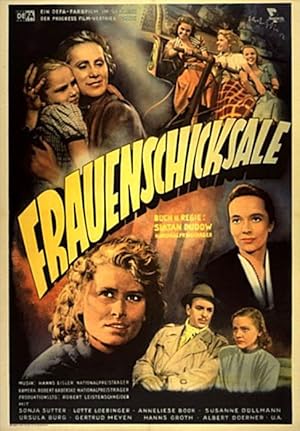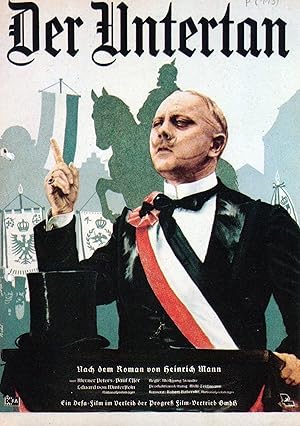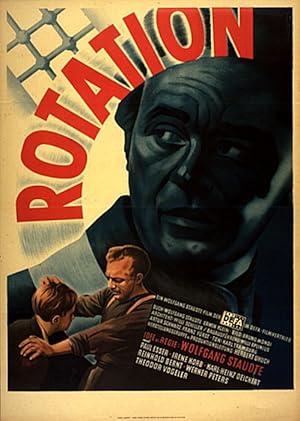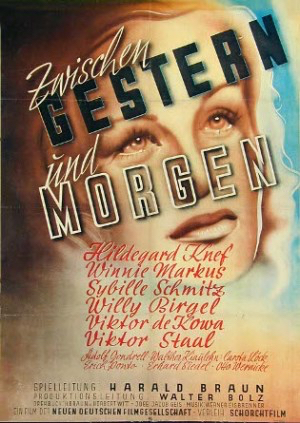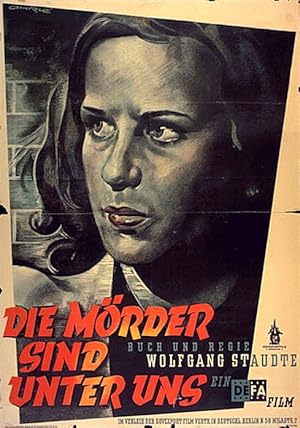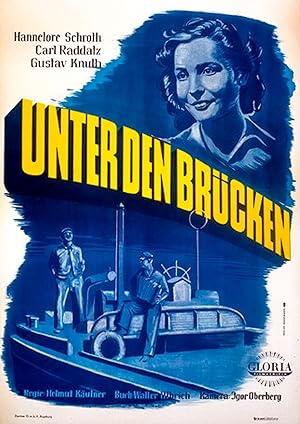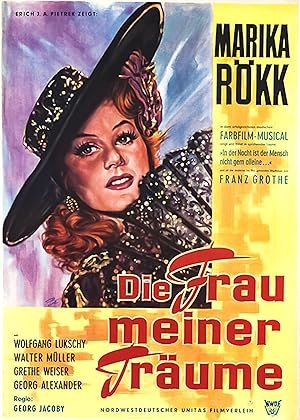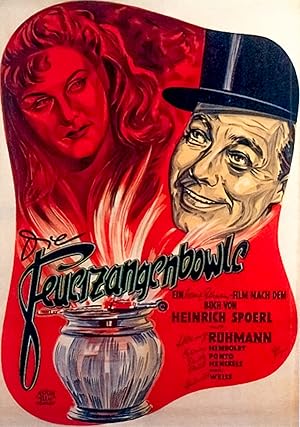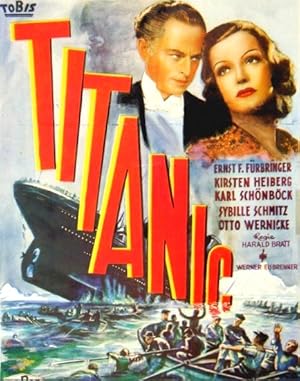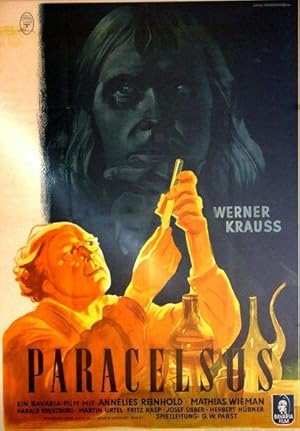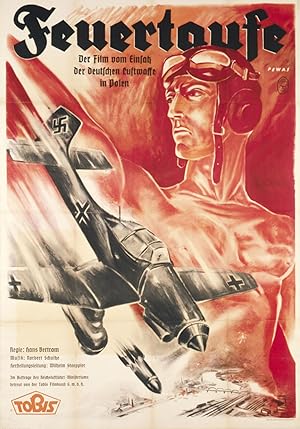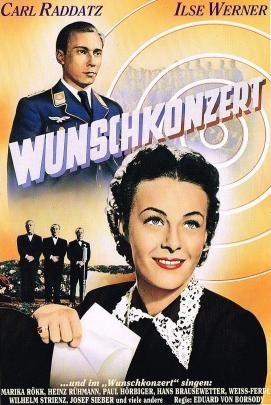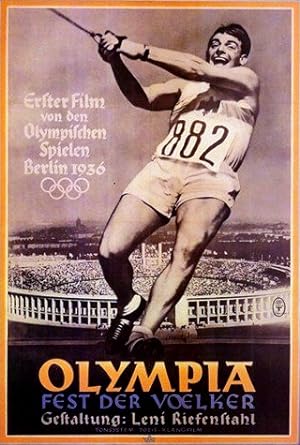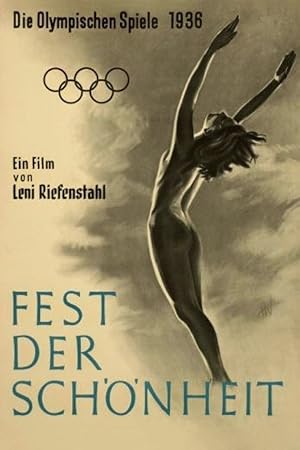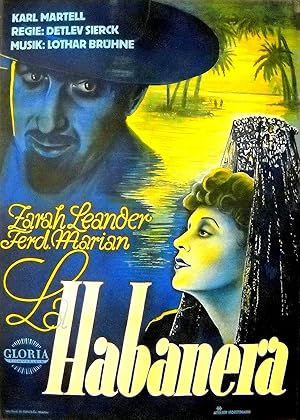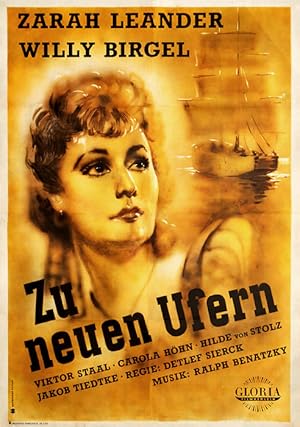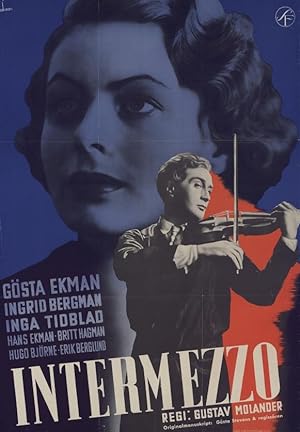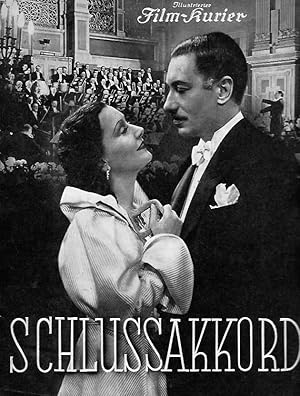Top De-Language Movies
You’re now browsing page 84, where our journey through De-language movies continues. If you’ve already encountered some outstanding titles on previous pages, now is the perfect time to dig deeper, uncovering more cinematic gems that highlight the richness of de-language storytelling. Keep exploring and enjoy the ride!
Destinies of Women (1952)
0
Berlin 1952, seven years after WWII. Four women are looking for a good man and happiness in the divided city. Their destinies are loosely connected through one person: the West Berlin dandy and womanizer, Conny.
The Kaiser's Lackey (1951)
0
Diederich Heßling is scared of everything and everyone. But as he grows up, he comes to realize that he has to offer his services to the powers-that-be if he wants to wield power himself. His life motto now runs: bow to those at the top and tread on those below. In this way, he always succeeds: as a student in a duel-fighting student fraternity and as a businessman in a paper factory. He cajoles the obese district administrative president Von Wulkow and wins his favor. He slanders his financial rivals and hatches a plot with the social democrats in the town council. On his honeymoon with his rich wife Guste, he finally finds a chance to do
Rotation (1949)
0
The mechanic Behnke wants to join the Nazi party to secure a good living. However, after his Jewish neighbors have been taken away, he changes his views. Trying to remain "a non-political man," he withdraws from reality and becomes a Nazis laborer.
Between Yesterday and Tomorrow (1947)
0
A group of people gathers back in the post-war ruins of a luxurious Munich hotel they inhabited at one point or another years before; each trying to cope with the tragic consequences of the war and their own actions.
Under the Bridges (1946)
0
Two barge skippers fall in love with the same woman.
The Woman of My Dreams (1944)
0
Blonde goddess Marika Rökk plays Julia Koster, a ravishing red-headed musical revue star and her opening number, "At Night It Isn't Right To Be Alone", playing to a packed theater, is both an eye-popper and a jaw-dropper.
The Punch Bowl (1944)
0
Die Feuerzangenbowle from Director Helmut Weiss is based on the novel by the same name from Heinrich Spoerl and Hans Reimann that has turned into a cult German film. The film tells the story of a writer Johannes Pfeiffer who goes undercover as a student in a high school after his friends told him that he missed out on a great life experience since he was home schooled.
Titanic (1943)
1
This little-known German film retells the true story of the British ocean liner that met a tragic fate. Ernst Fritz Fürbringer plays the president of the White Star Line, who unwisely pressed the Titanic's captain (Otto Wernicke) to make the swiftest possible crossing to New York.
Paracelsus (1943)
1
The story of the Renaissance-era Swiss physician, alchemist and astrologer Philippus Aureolus Theophrastus Bombastus von Hohenheim, better known to the world as Paracelsus.
Baptism of Fire (1940)
0
The Legend of the Luftwaffe began in Poland, the first victim of Hitler's blitzkrieg. Combat cameramen filmed the aerial campaign, showing preparations for flight, massive air strikes, and the appalling devastation wreaked upon Polish towns and armies. Highlighted by a lengthy, riveting sequence depicting the siege of Warsaw, Feuertaufe inspired Germany with pride and confidence and foreign viewers with dread. Norbert Schultze's original score lyrically enhances this propaganda masterpiece.
Request Concert (1940)
0
The young, attractive Inge Wagner becomes acquainted with Herbert Koch during the Berlin Olympics, his flight officer insignia having first caught her eye. Sparks fly immediately between the two and they soon decide to marry. But Herbert is called off on a secret mission in Spain.
Olympia: Part One – Festival of the Nations (1938)
0
Commissioned to make a propaganda film about the 1936 Olympic Games in Germany, director Leni Riefenstahl created a celebration of the human form. This first half of her two-part film opens with a renowned introduction that compares modern Olympians to classical Greek heroes, then goes on to provide thrilling in-the-moment coverage of some of the games' most celebrated moments, including African-American athlete Jesse Owens winning a then-unprecedented four gold medals.
Olympia: Part Two – Festival of Beauty (1938)
0
Commissioned to make a propaganda film about the 1936 Olympic Games in Germany, director Leni Riefenstahl created a celebration of the human form. Where the two-part epic's first half, Festival of the Nations, focused on the international aspects of the 1936 Olympic Games held in Berlin, part two, The Festival of Beauty, concentrates on individual athletes such as equestrians, gymnasts, and swimmers, climaxing with American Glenn Morris' performance in the decathalon and the games' majestic closing ceremonies.
La Habanera (1937)
0
While vacationing in Puerto Rico, a young Swedish woman falls in love with and marries a powerful local landowner. Ten years later, their marriage has turned sour; meanwhile, two Swedish doctors have arrived on the island to investigate a mysterious fever.
To New Shores (1937)
0
A 19th-century London cabaret singer is deported to prison in Australia. Her crime? Taking the blame when her lover bounces checks.
Intermezzo (1936)
0
The world famous violinist Holger Brandt comes back to his family after a tour. He and his wife have been married for many years, but their love has faded. Their young daughter gets a new piano teacher, Anita Hoffman. Mr. Brandt falls in love with her and together they go on a world tour, but he soon discovers that the feelings for his wife that he thought were dead are not.
The Final Chord (1936)
0
After her husband dies, a German woman who gave up her infant for adoption to emigrate to America returns to Germany, discovering that her child is being raised by a married orchestra conductor.
